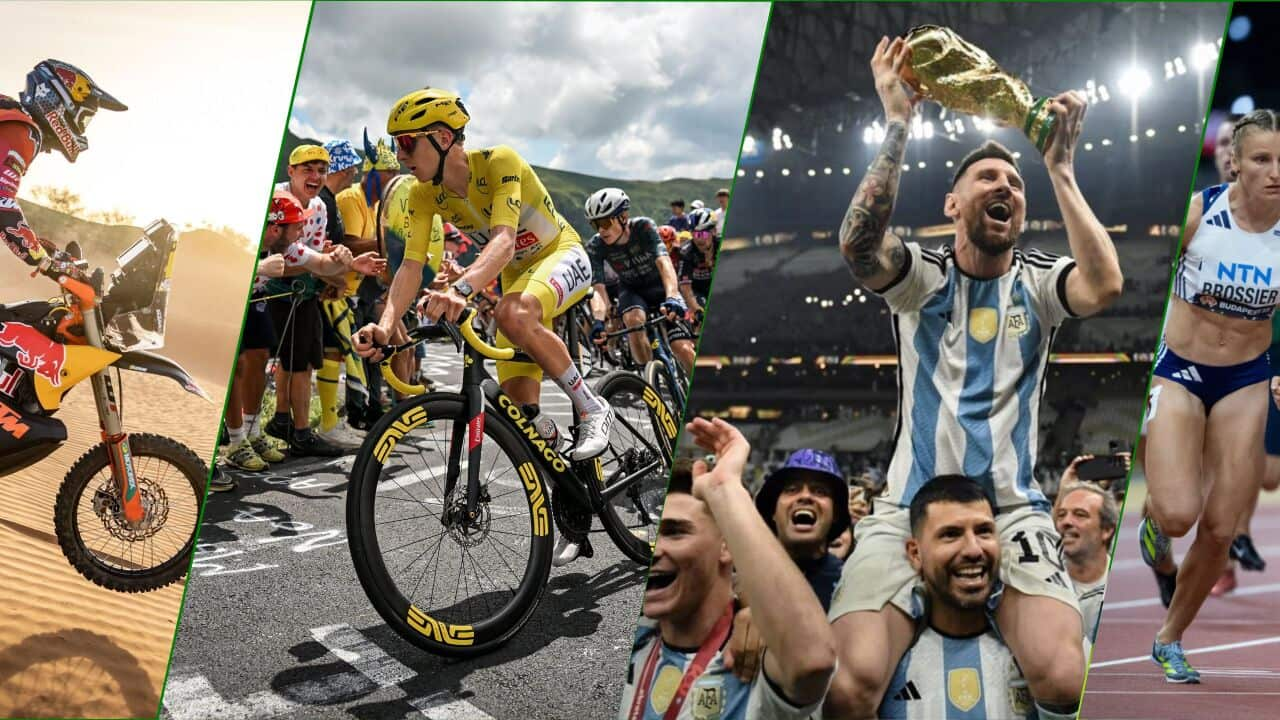Matthews and Cavendish have gone about their approach to the points classification differently, Cavendish scored 200 of his points through his stage wins alone.
Matthews has had to take every single opportunity to score points over the course of three weeks of competition, scrapping at intermediates, getting into breaks and relying on his team to drop the British sprinter with long turns of pace-making up climbs leading into sprints.
Cavendish will go into the final battle with a substantial 35 point margin and the weight of history behind him. No man has won more times on the Champs-Élysées in the Tour de France than the 'Manx Missile'.
He has 34 Tour de France victories under his belt and will go into the record books as the rider with the most stage wins at the Tour, overtaking Eddy Merckx if he can continue his winning ways.
He also has the strongest leadout in the race, a team without peer in the sprint finishes so far that have dropped him off with near-perfect positioning in the bunch sprints.
Against that, Matthews goes in with one real leadout rider in Luka Mezgec, though no doubt the likes of Luke Durbridge, Chris Juul-Jensen and Esteban Chaves will be trying to help wherever possible.
The Canberran hasn't given up yet, still holding out hope of a late comeback win.
“It is still possible," said Matthews after the Stage 20 time trial. "Dreams do come true, but you can only make them come true by fighting for them. We’ll fight all the way to that finish line tomorrow in Paris.
The first battle will be for the intermediate sprint, 20 points for first across the line, then it goes 17-15-13-11-10-9-8-7-6-5-4-3-2-1.
The race until the peloton gets to Paris is always neutralised apart from once the riders reach the Champs-Élysées, were the team in yellow, or sometimes retiring greats lead the race through the first time and the battle for the stage win begins. The intermediate sprint will be on the second time through the finish point.
Matthews will likely need to win the sprint and put three positions difference into Cavendish for a six-point swing for him (eg. Matthews wins the intermediate, Cavendish finishes fourth), otherwise the scenarios from there almost entirely involved Cavendish crashing or suffering a mechanical, and missing out on the top placings from the stage.
If Matthews gets that six-point swing, more opportunities open up for him in the final sprint, but he will need to finish in the top two even in this optimistic scenario. There are a massive 50 points for first, but it drops away quickly after that going 30-20-18-16-14-12-10-8-7-6-5- 4-3-2 for the remainder of the places to 15th.
He could win the stage and if Cavendish finished fourth or worse, then Matthews would go into green. He could also finish second on the stage and if Cavendish missed the sprint points entirely in the finale, Matthews would win green. Both of those scenarios are very unlikely, of course, but at least they are a sliver of hope for the Australian to claim his second green jersey.
If the point swing is less than six at the intermediate sprint, things get very hard, Matthews then has to win the stage and hope that Cavendish finishes fourth or lower, the less points Matthews gains at the intermediate or even a swing the other way to Cavendish, the lower Cavendish would have to finish for Matthews to win green.
Even in a case where Cavendish scores no points at all on Stage 21, Matthews would have to win the intermediate and finish fifth or better at the finish, so you can see what a tall order it will be to unseat the incumbent green jersey wearer for the podium moment with the Arc de Triomphe in the background.
The Tour de France concludes with the traditional finish in Paris on the Champs-Élysées for Stage 21. Watch the action from the later start time of 2300 AEST on SBS and SBS OnDemand, with the SKODA Tour Tracker and the racing action starting at 0005 AEST.














